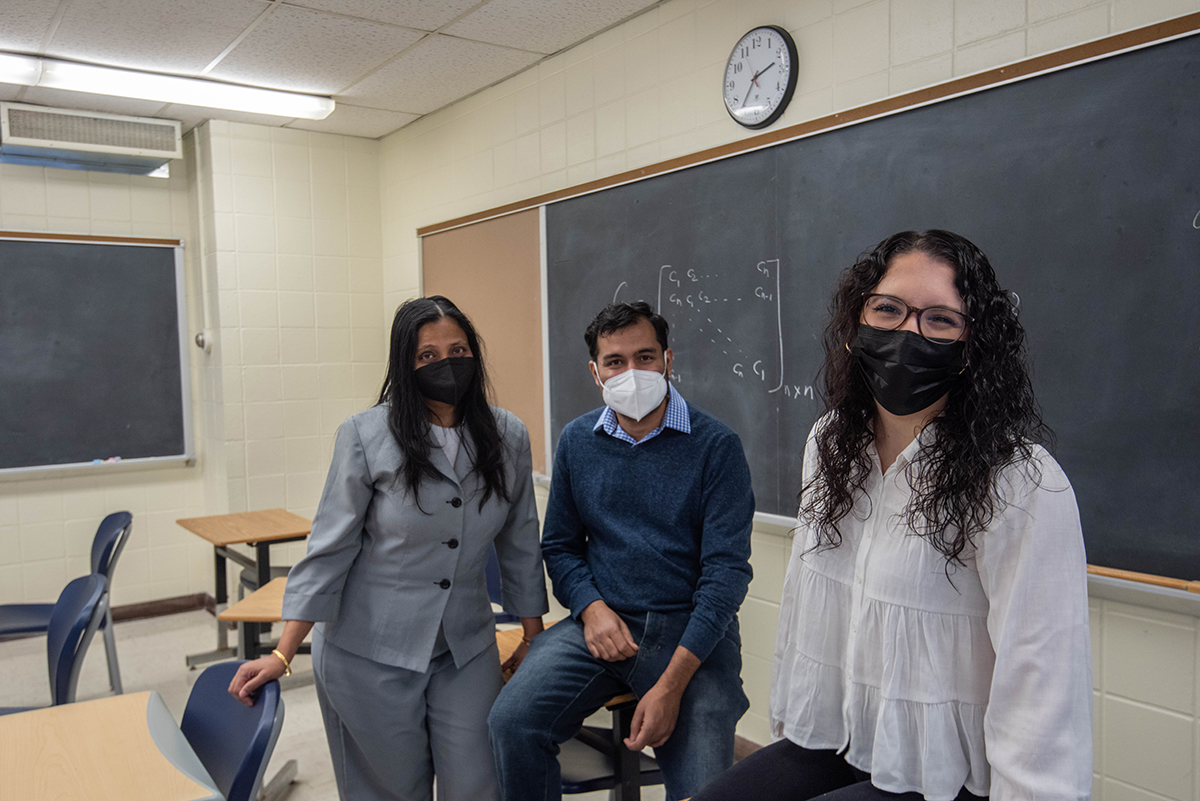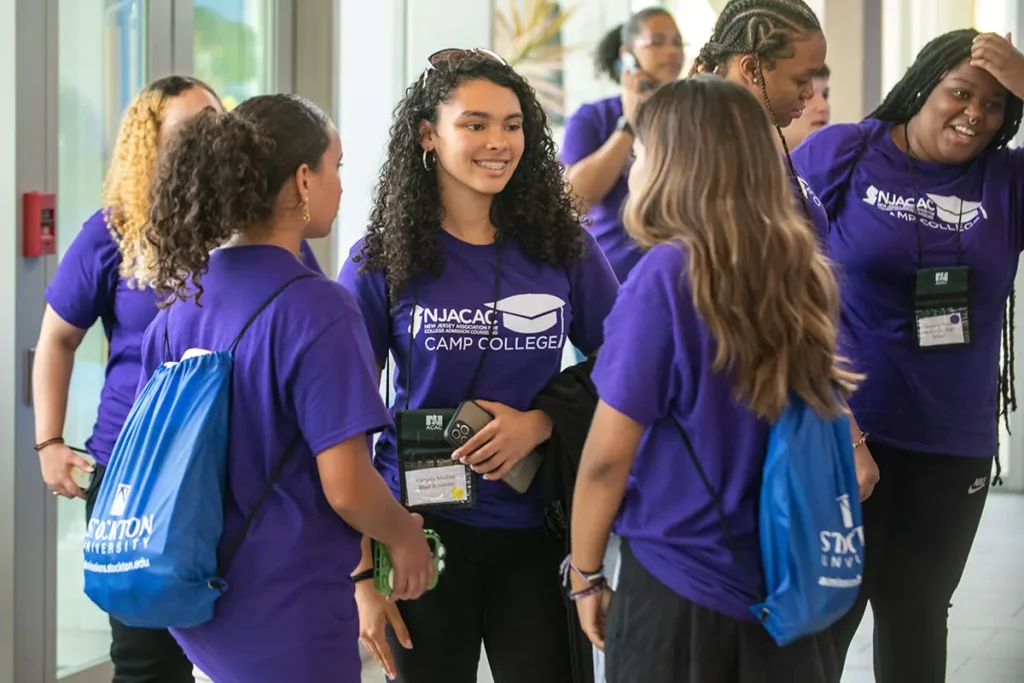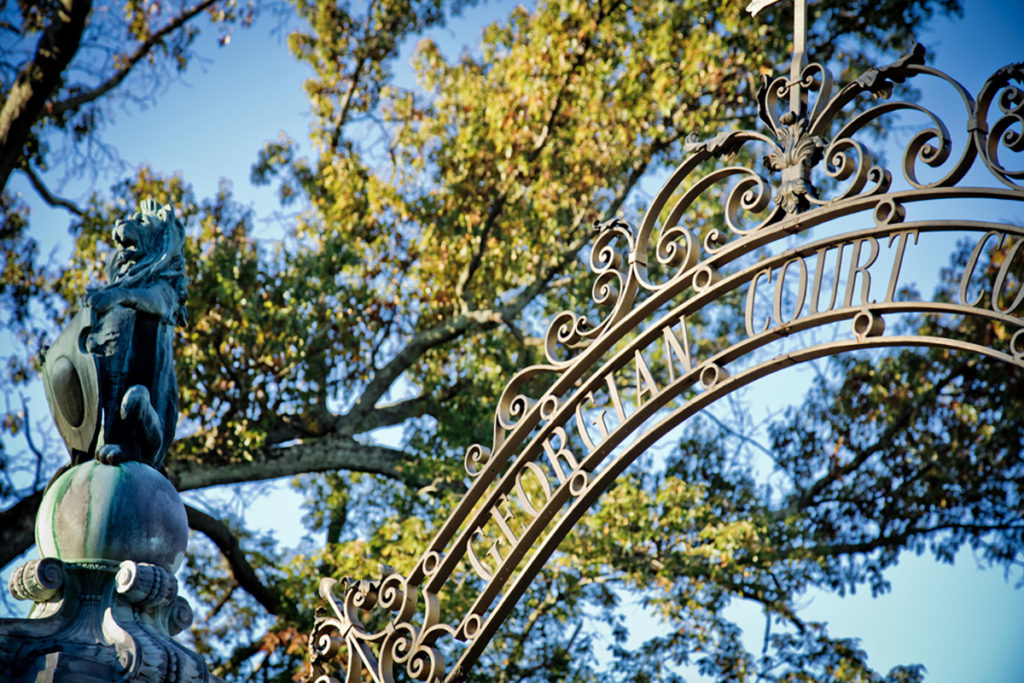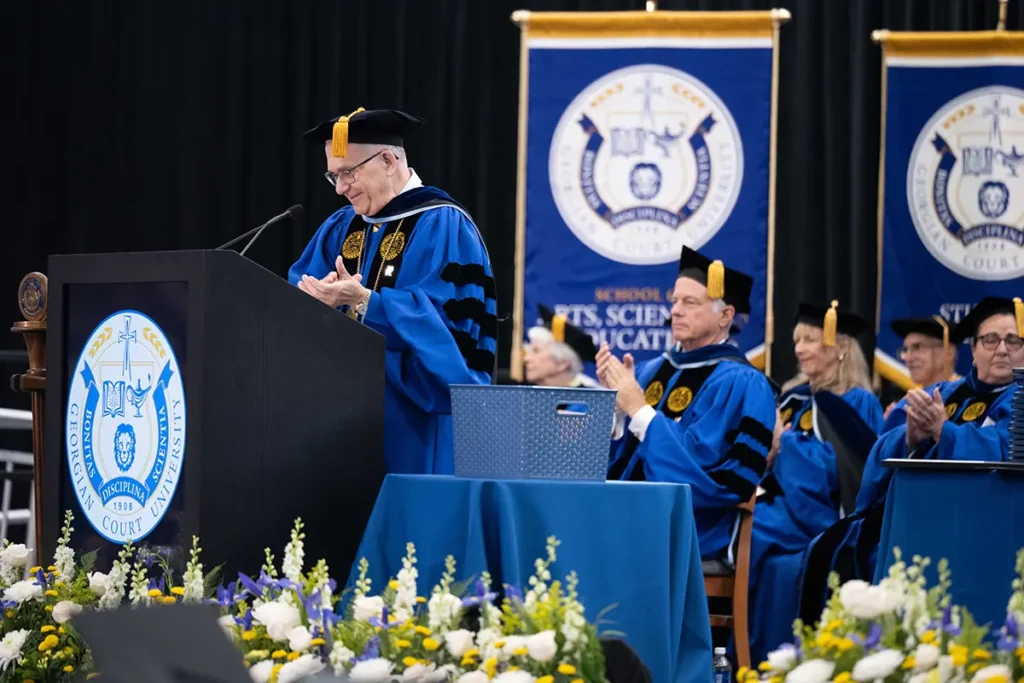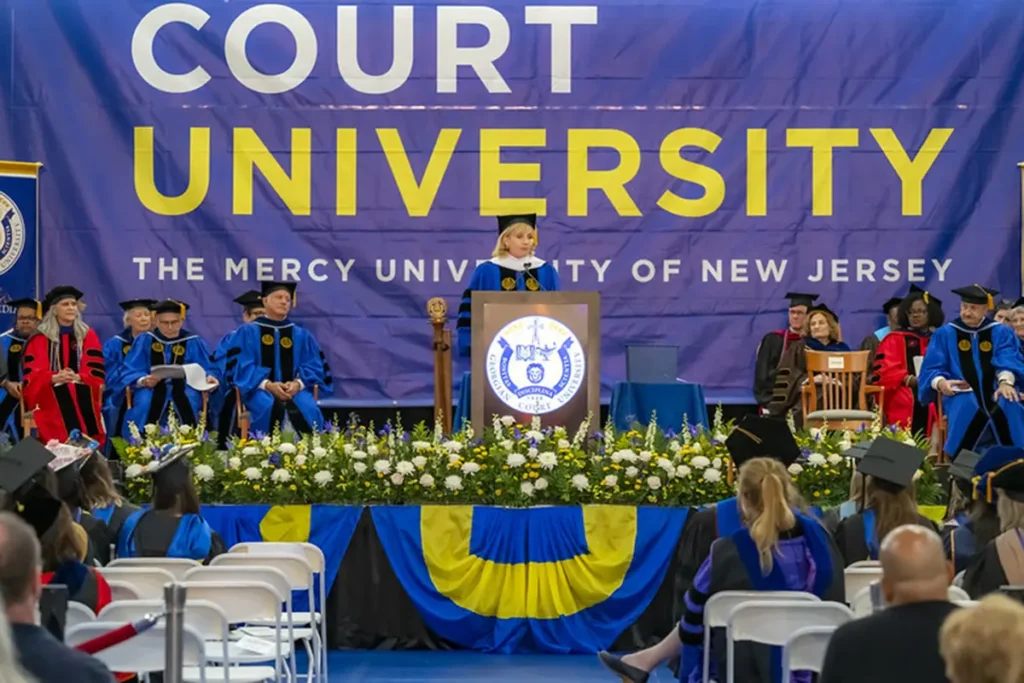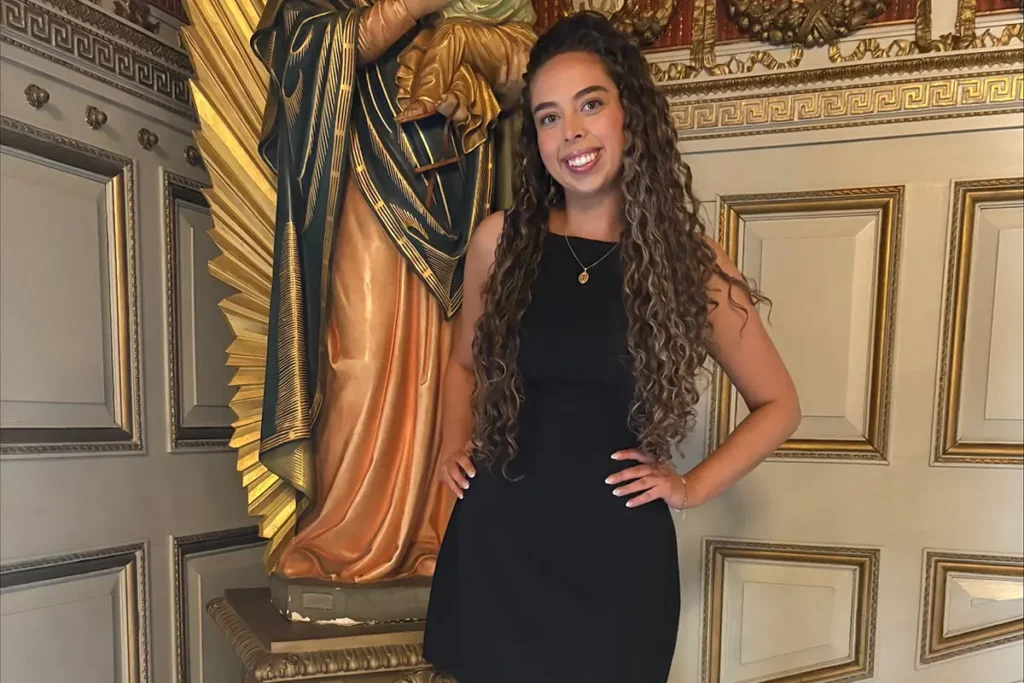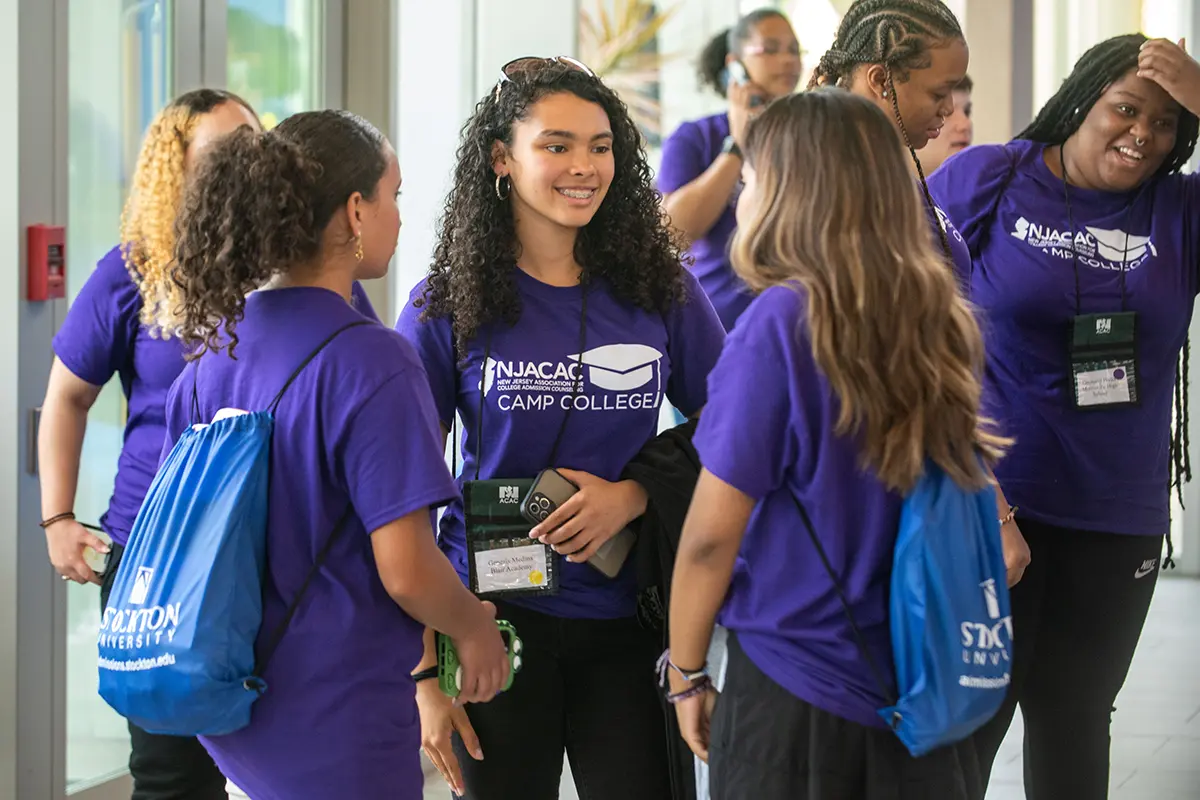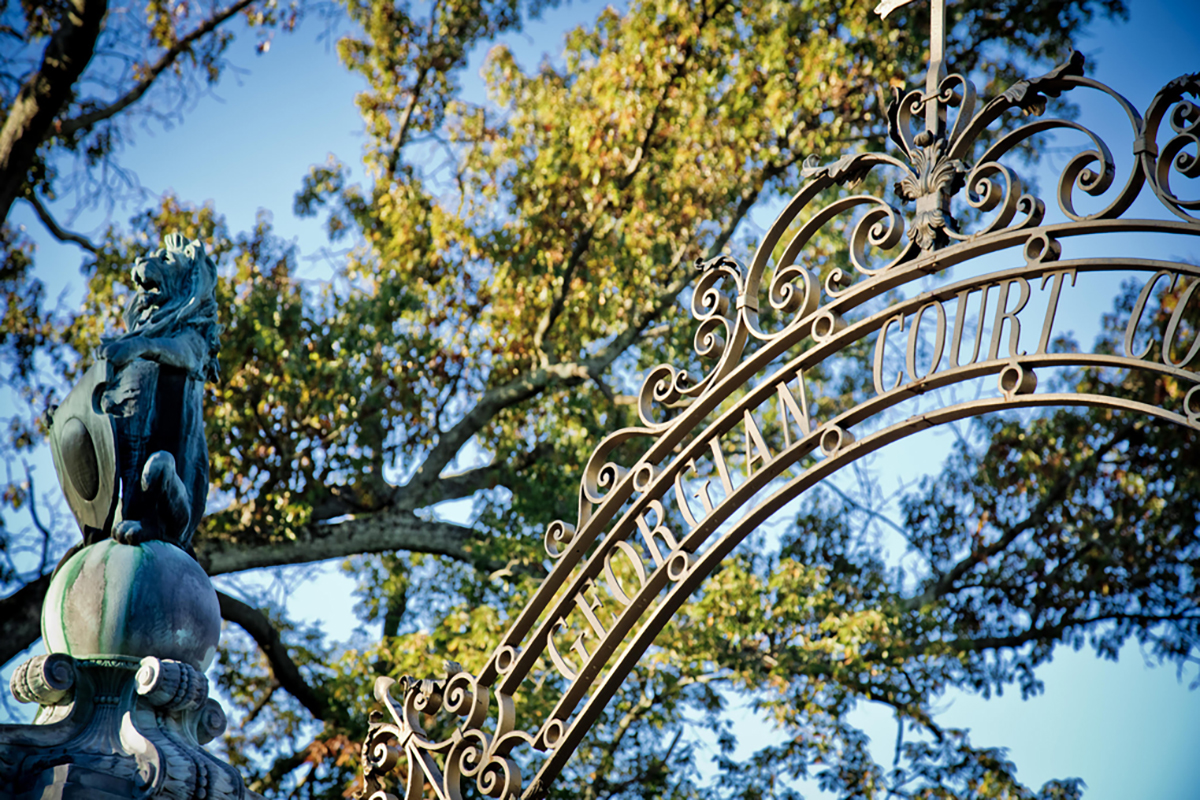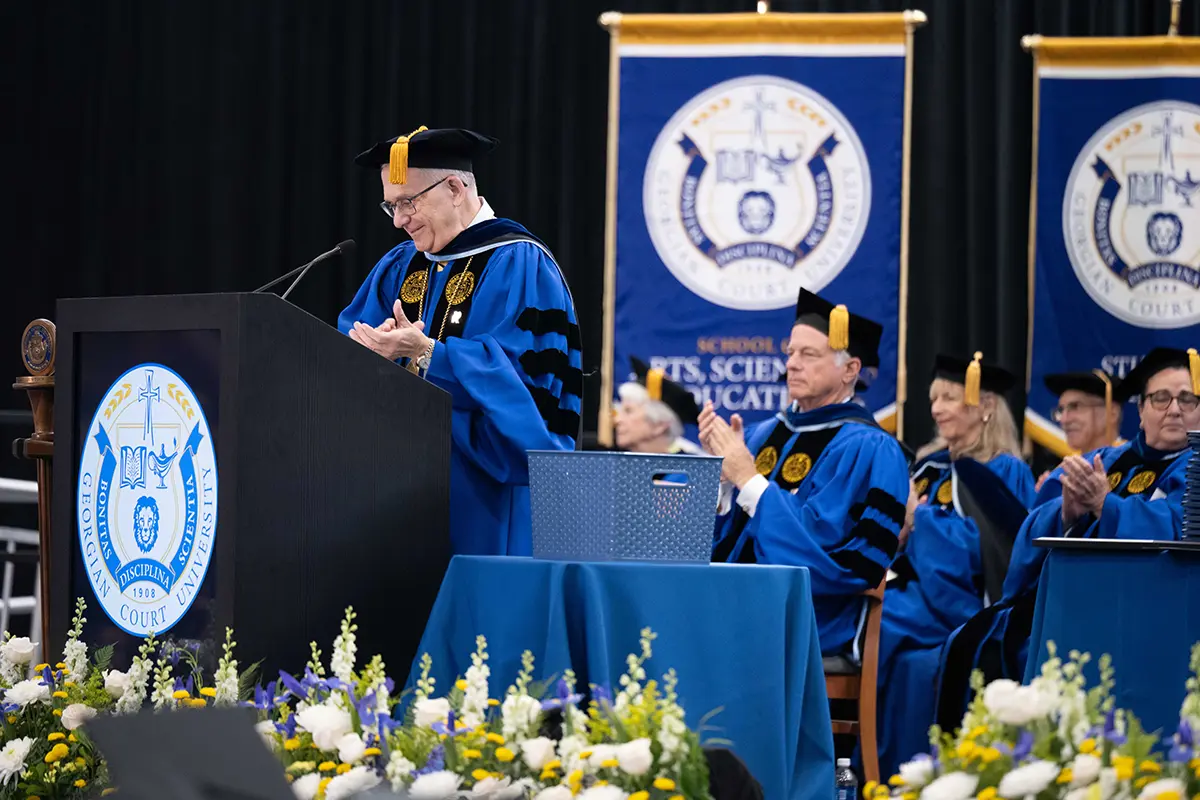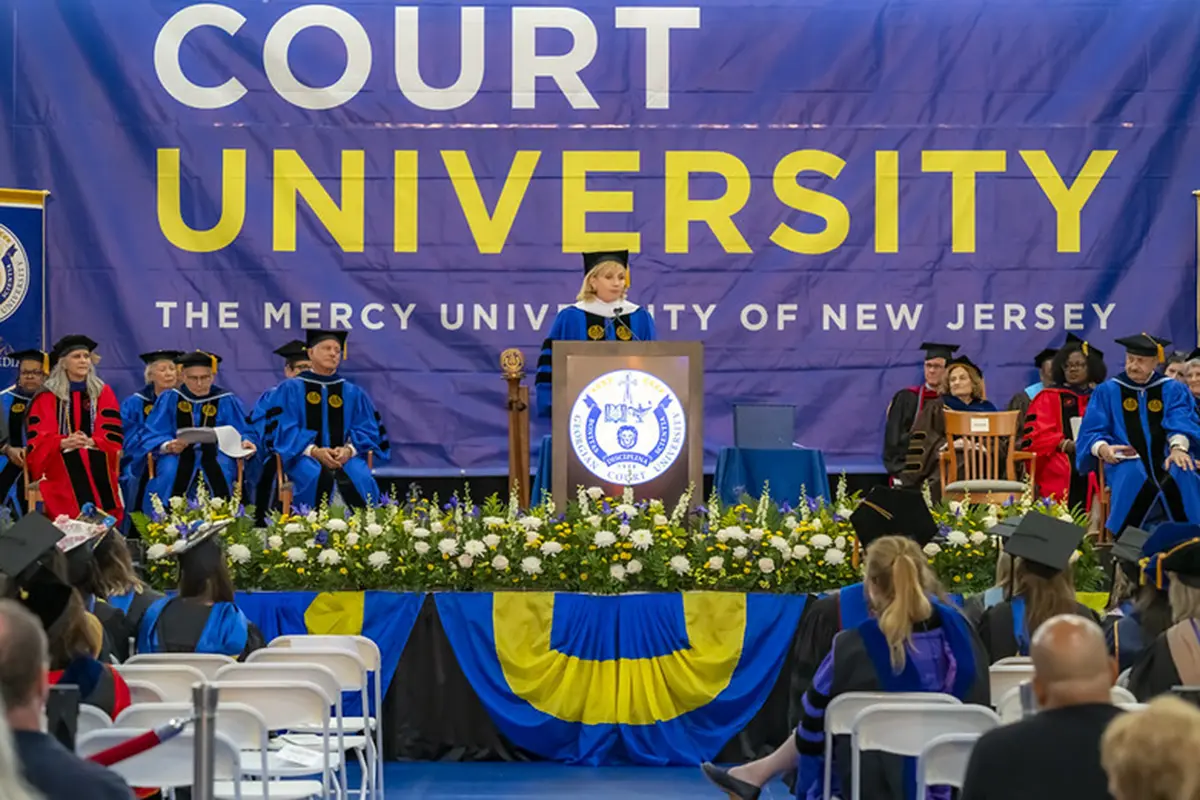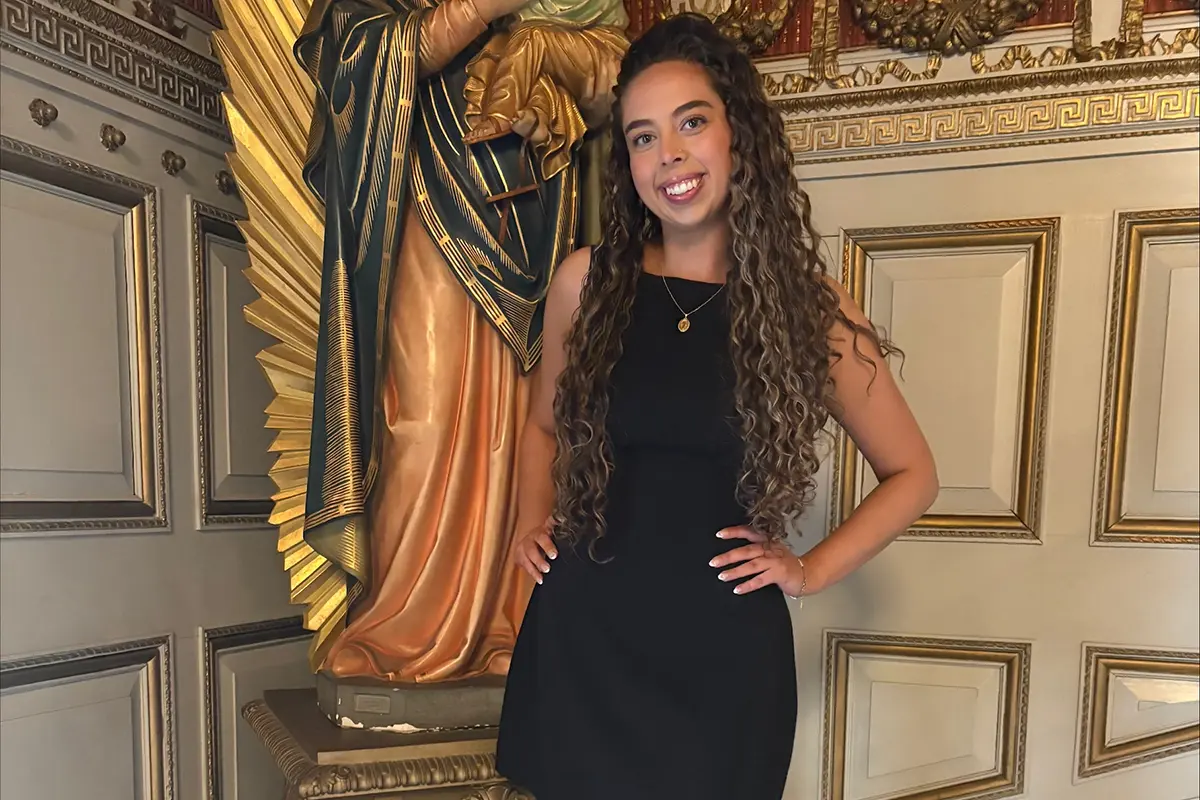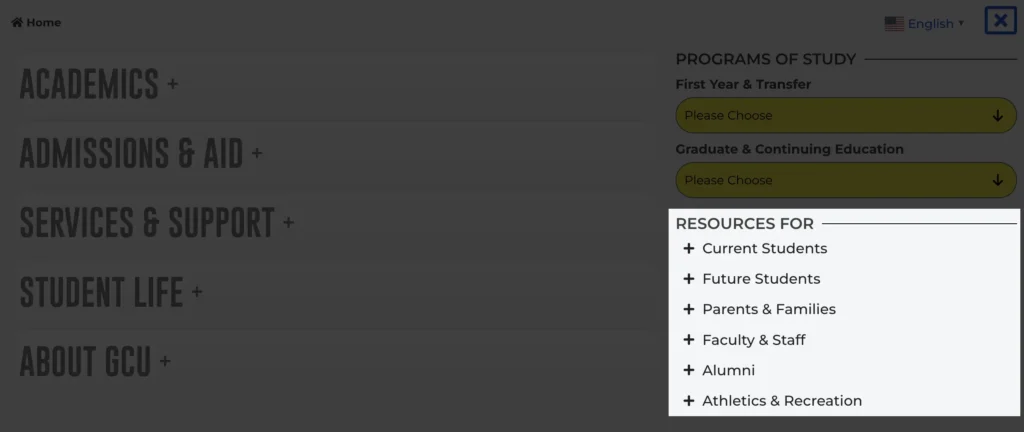Victoria Vonfrolio ’24 (right) has been researching a type of matrix to enable more efficient computing of data with funding from a NASA Space Grant along with her mentors, Dr. Sarita Nemani (left) and Dr. Saroj Aryal (center).
Five Georgian Court University (GCU) undergraduates received NASA Space Grants this academic year—a record number for the school. Each received a $2,000 grant for a space-related research project, conducted together with faculty mentors. “Many of our students report that these NASA student research grants for them have been game-changers!” says Anne Tabor-Morris, Ph.D., professor of physics, coordinator of the GCU NASA Science Outreach, and New Jersey NASA Space Grant representative.
In this installment of our GCU Space Grant series, meet Victoria Vonfrolio, a mathematics and education major from Howell, New Jersey.
Victoria Vonfrolio ’24 hasn’t told many people about her “quiet dream”: to work for NASA as a researcher. The movie Hidden Figures sparked her interest—the story of three female African-American mathematicians and their vital contributions to the early U.S. space program. Now, the research she is conducting with two GCU professors through a NASA Space Grant could have a role in making her dream a reality.
Victoria’s research journey began when her linear algebra instructor, Sarita Nemani, Ph.D., professor of mathematics, approached her after class one day. “She asked if I would be interested in doing some research and explained about the grant,” said Victoria. “I knew I always wanted to do something along these lines, but didn’t know how to go about finding an opportunity.”
“Every year, GCU is blessed with NASA funding that enables us to conduct research with students,” said Dr. Nemani. “I look for students who show interest in the subject I’m teaching, as well as the potential to be researchers. In Victoria’s case, she’s smart, dedicated, and very motivated.” For Saroj Aryal, Ph.D., assistant professor of mathematics, who co-mentors Victoria, “It’s an opportunity for me to explore further my current research interests and new areas together with students, and they get an opportunity to put together the concepts learned in different courses to solve a problem.”
Their research project involves analyzing a type of matrix—a rectangular array of data—so that data can be more efficiently computed. Entitled “Determinants of Special Circulant Matrices,” the project brings linear algebra classes to life through identification of patterns or relationships within these special types of matrices.
Every week, the team develops four or five large data charts, which Victoria analyzes for patterns from which a conjecture—an unproven statement that may or may not be true—is then developed. The actual proofing of these conjectures will happen in the research’s next phase, but for now, the focus is on highly detailed, meticulous mathematical “detective work.”
“We’re not focusing on particular applications right now,” says Dr. Nemani. “However, this work sets the foundation for information that could be valuable in aerospace engineering, as one example.” NASA scientists stand to benefit, but this research also has broader applications—such as information processing in the corporate world.
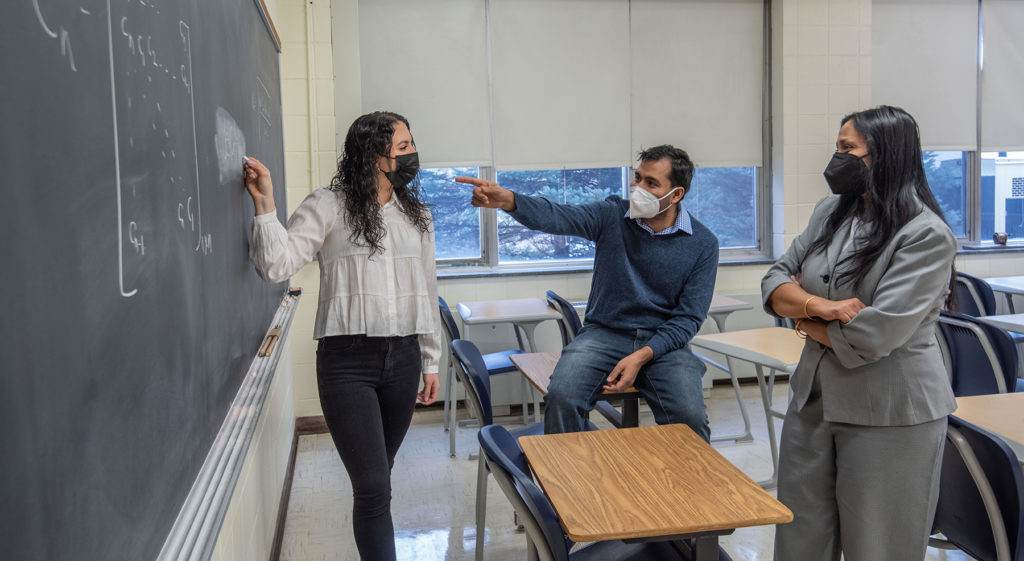
It’s been an enjoyable learning experience for Victoria, even giving her a kickstart on a future computer science class. “We’re using SageMath, which is an open-source CAS [computer algebra system] based on Python, so I’m gaining some familiarity with the programming language,” she said. “But mostly, through this research, I’ve learned to really pay attention to the little things that I might not initially see any connection between and to not be disappointed if I don’t come across something right away. It takes time.”
Victoria has been highly motivated to learn and explore the research topic from the start, according to Dr. Aryal. “She is excited to see how the concepts she learned in different courses like trigonometry, calculus, and linear algebra come together in trying to explore and answer some of the questions associated with these matrices,” he said. “I’ve also seen that she has started to develop skills of asking and creating mathematical questions based on observations.”
“I’m very happy Victoria joined our project, especially because I see how much she connects with the research and enjoys it,” said Dr. Nemani. “We don’t know what the future holds, but we’d love for her to continue with us in the next research phase.”
Learning Beyond the Classroom
Now that Victoria has completed several months of research, she has some advice for students who might want to apply for a NASA Space Grant or seek other research opportunities.
“From a time perspective, this research is like having an additional class, and at first, I was a little concerned about that,” said Victoria, who also holds two part-time jobs and is involved with Women in Leadership Development (WILD) and Math Club at GCU. “Don’t be put off by the time commitment. Instead, look at it as an opportunity to learn more about yourself through the project, because you’re going to realize what your passion is—much more than you would through a class.”
Whether Victoria achieves her dream of working at NASA is still not known. And even if it doesn’t come to pass, she loves mathematics and teaching others—and is grateful to learn about teaching from two of the best.
“It’s been really amazing to learn from Dr. Nemani and Dr. Aryal because they are such smart and amazing teachers,” said Victoria. “I feel like I have learned a lot of problem-solving skills from them, and I find them already useful in instances such as when I need to use several techniques and pattern-finding methods to solve our Math Club Problem of the Month. Having them as mentors and forming close relationships through this research has been a far-reaching experience to me, exposing me to the beauty and strength of mathematics. As a math education major, this research has helped me realize how ‘doing mathematics’ and ‘teaching mathematics’ are both necessary to become a good math teacher, and that is one my goals for the future.”
Other Student Profiles in the GCU Space Grant Series
Diana Gallego: “The Impact of Mental Health on the Human Autonomous Nervous System,”
Emily Humphries: “Comparing Algorithmic Efficiencies of MATLAB, Mathematica, and Maple”
Angelina Monaco: “The Effect of Isolation and Loss of Social Networks with Applications in Space Exploration.”
Patrick Morris: “The Effect of Cognitive Demand on Exercise Capacity and Performance”
NASA’s National Space Grant College and Fellowship Project is a national network of colleges and universities working to expand opportunities for Americans to understand and participate in NASA’s aeronautics and space projects by supporting and enhancing science and engineering education, research and public outreach efforts. Georgian Court has been participating for approximately two decades.
Story contributed by freelance writer Sheila Noonan. Photos by Jim Connolly.

